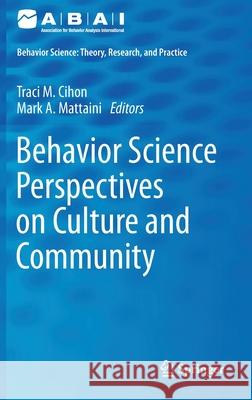Behavior Science Perspectives on Culture and Community » książka
topmenu
Behavior Science Perspectives on Culture and Community
ISBN-13: 9783030454203 / Angielski / Twarda / 2020 / 445 str.
Kategorie:
Kategorie BISAC:
Wydawca:
Springer
Seria wydawnicza:
Język:
Angielski
ISBN-13:
9783030454203
Rok wydania:
2020
Wydanie:
2020
Numer serii:
001088871
Ilość stron:
445
Waga:
0.81 kg
Wymiary:
23.39 x 15.6 x 2.54
Oprawa:
Twarda
Wolumenów:
01
Dodatkowe informacje:
Wydanie ilustrowane











